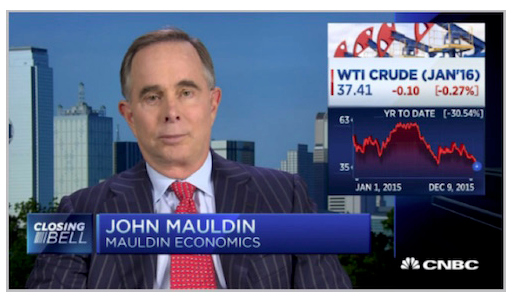By this point it should be clear that even the brightest economic and financial minds struggle to make accurate forecasts. Should we ignore them all?
No. I think the real problem is timing.
I think it is possible to observe events and trends and then to make informed projections about the future. A few people can even do it with reasonable accuracy, at least in their own areas of expertise. The problem lies in correlating what you know is coming with the particular calendar year in which it will occur.
For instance, note what I said above. I made a recession forecast within a 10-year period. I feel very confident we will have a recession between 2016 and 2025. I can’t tell you exactly what year it will occur, although I will expose the extent of my hubris by actually trying to narrow that range down in just a few paragraphs.
I can readily forecast within a 10-year window because economic trends rarely change overnight. The events that drive national and global economic cycles take time to unfold. Even if we completely ignore present circumstances, we know it would be unprecedented for the US economy to go 10 years without at least a mild recession.
I’ll readily admit that some people are pretty good at forecasting short-term market movements. Most of them are professional traders. They’re also the first to tell you that they don’t bet the house on their forecasts. They know how easy it is to be wrong – and how costly.
My own talents are at the other end of the scale. I can look out 5–10 years and tell you in broad terms what I think will happen, but the next year is a crapshoot. I make annual forecasts mainly because so many people want to know what I think. If that’s you, please note that I reserve the right to change my mind tomorrow.
Another Muddle-Through Year
So with all that as prelude, let’s get on with my 2016 forecast. I talked about it in a CNBC appearance last month. Click on the picture of the old guy for a quick summary; then I’ll give you some additional detail.









